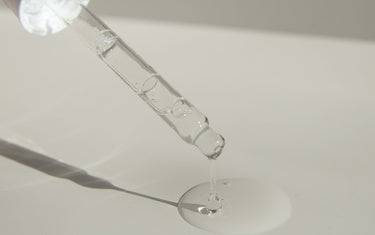3 min read / 13 January 2022 / yasmin sharp
Essential and Fragrance Oil Terminology: A Helpful Glossary
Here's your guide to some of the confusing terms you might find on your oils.
Share this post

Whether you’re dealing with essential or fragrance oils, you will sometimes see some confusing terms on their labels.
It can be hard to determine whether these classifications are good or bad without an understanding of the terminology.
Here are some of the common terms you may come across, and what they mean for you.
Essential oil and fragrance oil glossary
Paraben-free
Parabens are synthetic chemicals used in beauty and wellness products to give them a longer shelf life.
Some people claim that they may be harmful to the human body if used in large amounts, however there’s not sufficient evidence to suggest that parabens are dangerous.

Phthalate-free
Phthalates are often used to bind and blend fragrance oils, but they are also used in a wide range of other industries, and are commonly used to increase the rigidity of plastic.
They can sometimes make scents last longer and so some manufacturers of fragrance oils use them to create a more enduring product.
There isn’t concrete evidence that phthalates are bad for us, but some people still prefer to avoid them.

Vegan friendly
Vegan friendly oils contain no animal products. Strictly speaking, all essential oils should be vegan as they should be extracted from 100% pure plant material.
However, some fragrance oils may use animal products – make sure to always check the label.

Cruelty-free
Cruelty free products have not been tested on animals. If a product is cruelty free then it will always be advertised either on the label or the vendor’s website, so be sure to check before purchasing.

Cold pressed
Cold pressed oils are extracted by piercing the plant matter (often a fruit) to release the oil from the essential oil sacs, and separating it out using a centrifuge. Heat is never applied during this process.
Cold pressed citrus oils may be phototoxic, so it is important to always check the safety information or reach out to the manufacturer to confirm if the oil is safe to apply to skin.

Steam distilled
Steam distilled oils are extracted by passing steam through a closed chamber containing the peel and letting the oil condense on top of the water. They are not phototoxic.
Furanocoumarin-free (FCF)
Furanocoumarins are a group of substances that cause phototoxic reactions in the skin.
FCF oils have had their furanocoumarins removed, which prevents phototoxic reactions and makes them safe to apply to skin, even if they have been cold pressed.
Vanillin-free
Vanillin is a chemical present in some fragrance oils that can cause discolouration in soap and candles.
Many crafters therefore prefer to use vanillin-free oils in order to prevent discolouration.

FAQs
Do essential oils have phthalates?
No, essential oils themselves do not contain phthalates. Phthalates are synthetic chemicals used in some fragrances to enhance scent longevity, but they are not naturally present in essential oils.
Essential oils are pure extracts derived directly from plants and do not contain synthetic additives like phthalates.
Are essential oils paraben-free?
Yes, essential oils are naturally paraben-free. Parabens are synthetic preservatives commonly found in cosmetics, skincare products, and some fragrances to prevent microbial growth.
Since essential oils are derived directly from plants through processes like distillation or cold pressing, they do not contain parabens or any synthetic preservatives.












